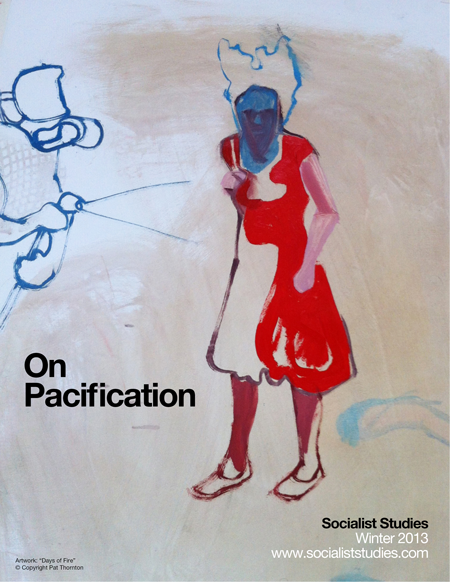The Pacification of the American Working Class: A Time Series Analysis
DOI:
https://doi.org/10.18740/S4J016Keywords:
Pacification, policing, inequality, unions, United StatesAbstract
In this paper we operationalize and empirically test six core tenets of pacification theory derived from Marxian political economy using time series data for the USA from 1972-2009. Our analysis confirms that rising inequality is statistically significantly correlated to increased public and private policing over time and that increased public and private policing is also statistically significantly correlated to increased industrial exploitation as measured through “surplus-value”. While unionization correlates to strikes and lock-outs which suggests that unions have an important mobilizing role for the industrial reserve army, unionization also inversely correlates to total policing employment. As union membership decreases, policing employment increases, which gives credence to the notion that unions may also act as policing agents for capital. We conclude that when these findings are coupled with our previous international research of 45 countries for the snapshot year of 2004 (Rigakos and Ergul 2011) that produced almost identical results, there appears to be significant empirical support for pacification theory. The relationships we have discovered recur both across time and international contexts despite the fact that variations in legal norms and institutional histories of policing are varied and complex.Downloads
Published
Issue
Section
License
Copyright: Authors who publish in the Journal agree to the following terms: 1)Authors retain copyright and grant the Journal the right of first publication with the work simultaneously licensed under a Creative Commons Attribution License that allows others to share the work with an acknowledgement of the work's authorship and initial publication in the Journal; and, 2)Authors are able to enter into separate, additional contractual arrangements for the non-exclusive distribution of the Journal's published version of the work (eg post to an institutional repository or publish it in a book), with an acknowledgement of its initial publication in the Journal.






